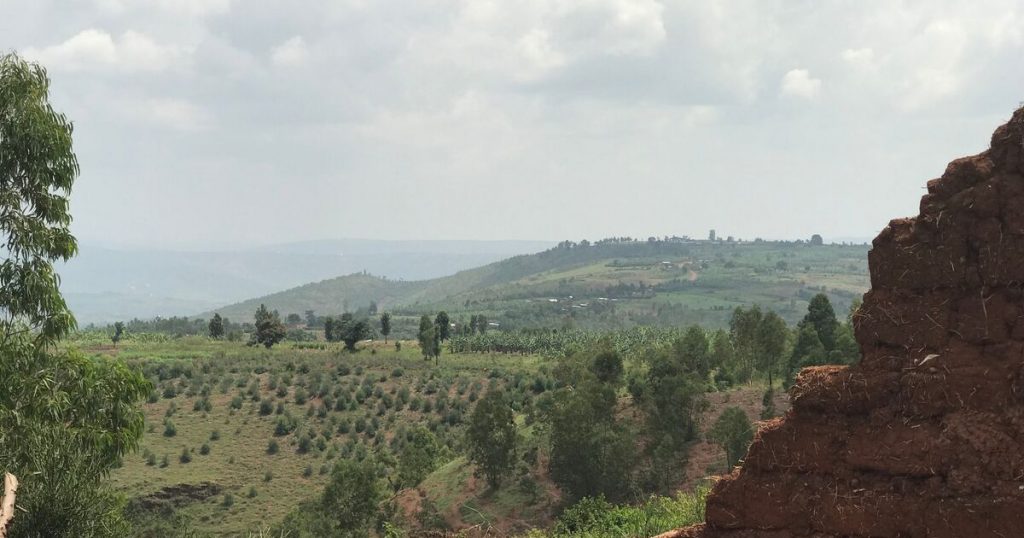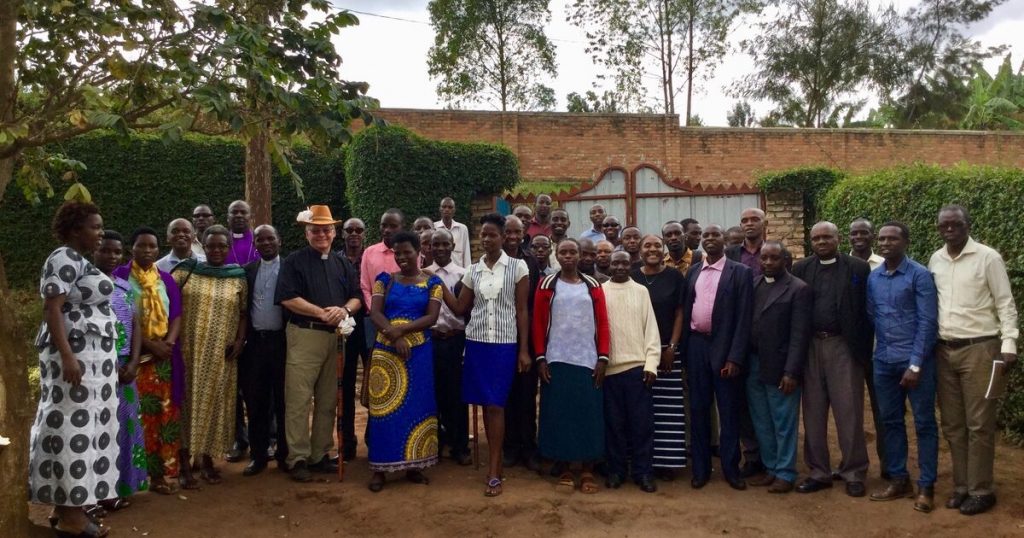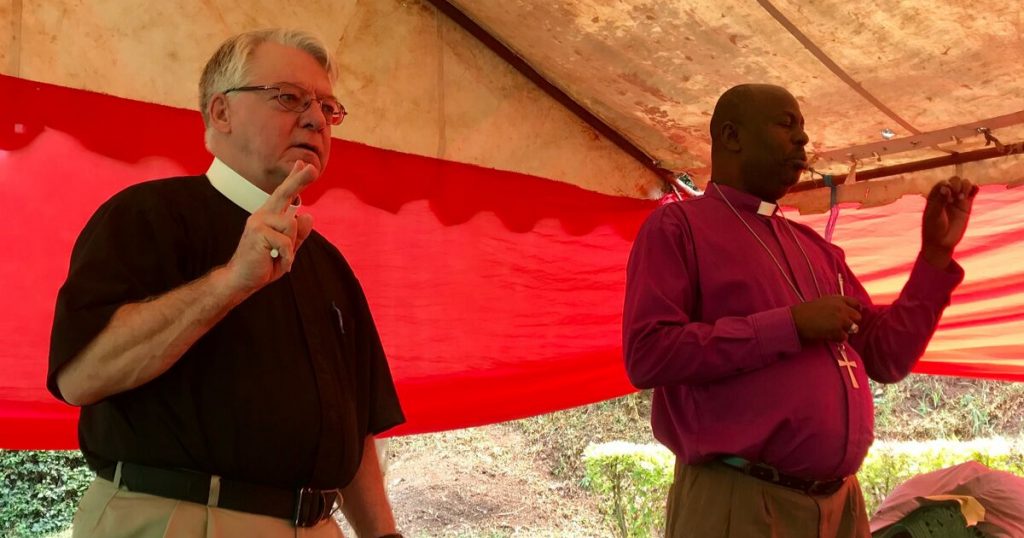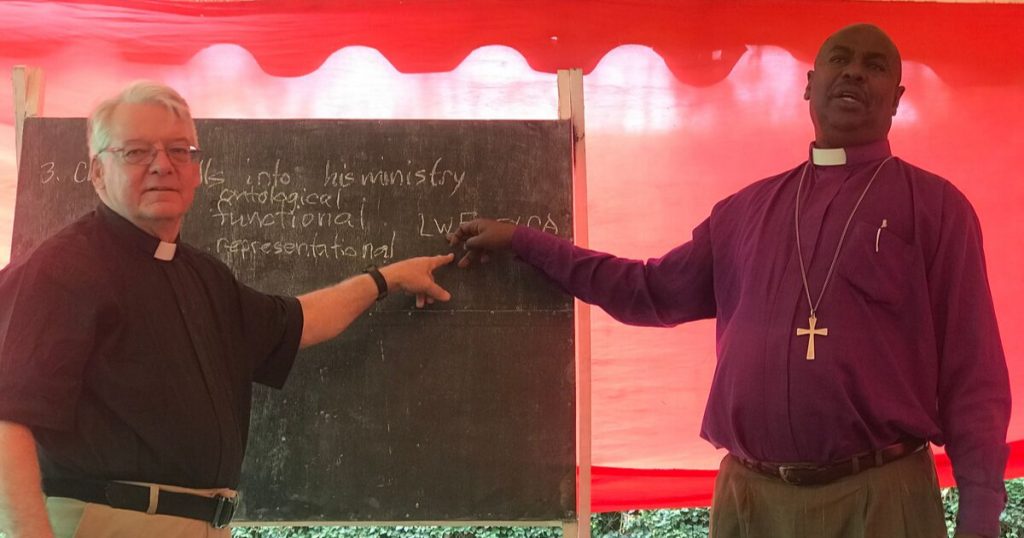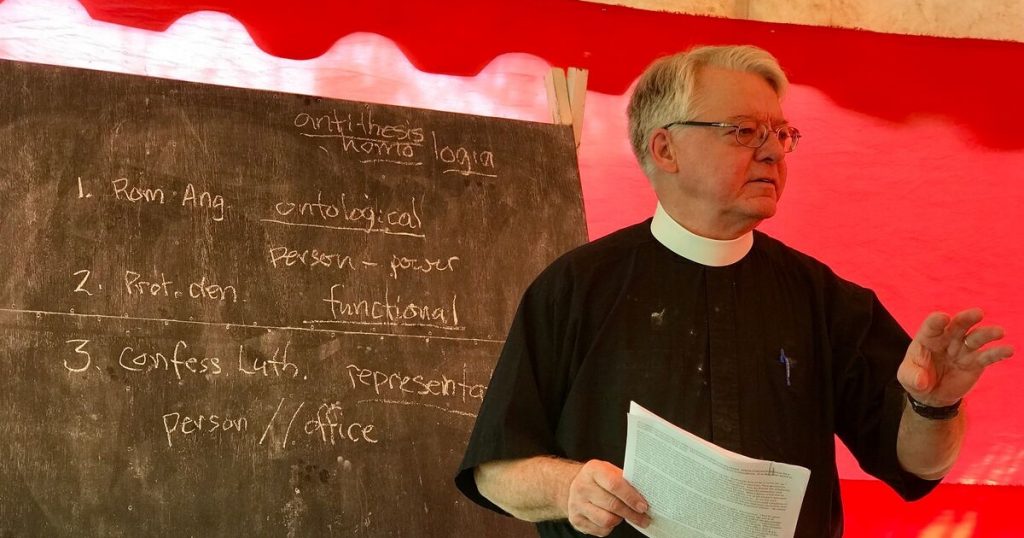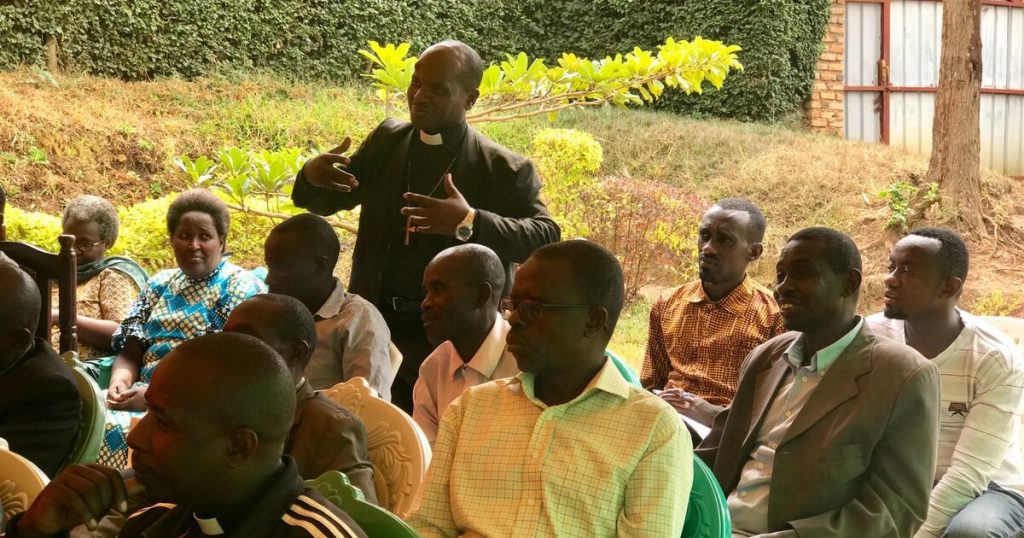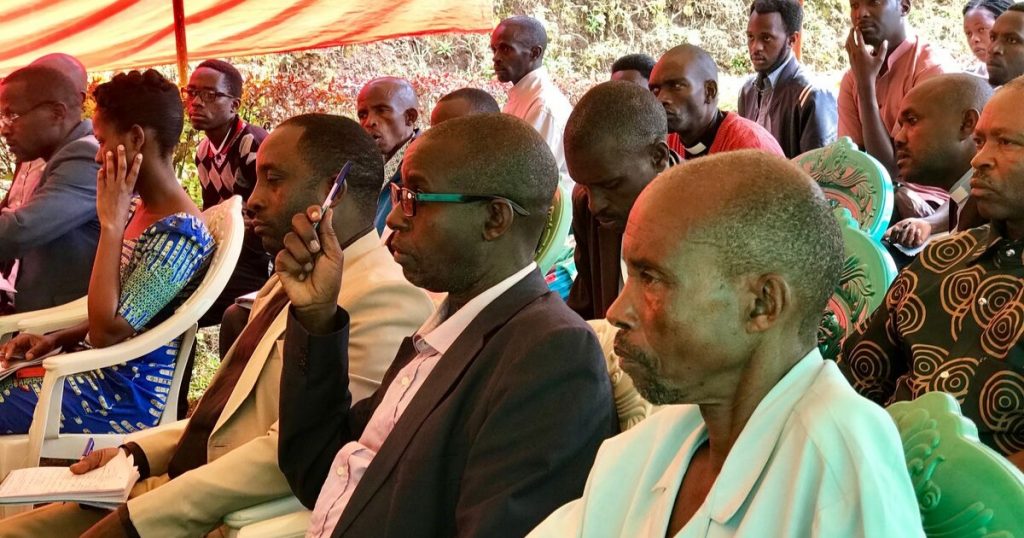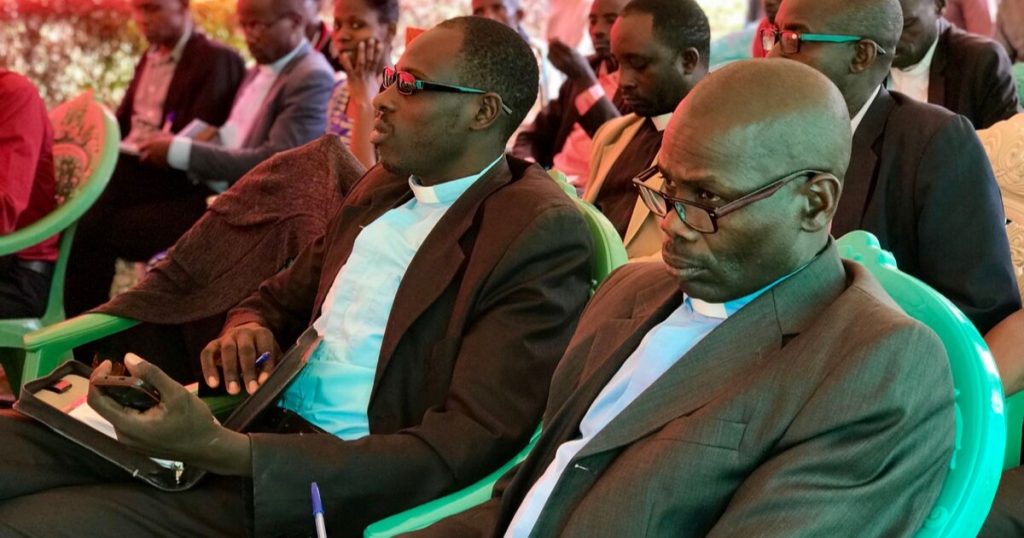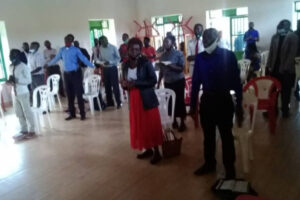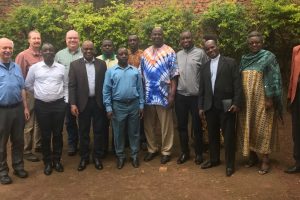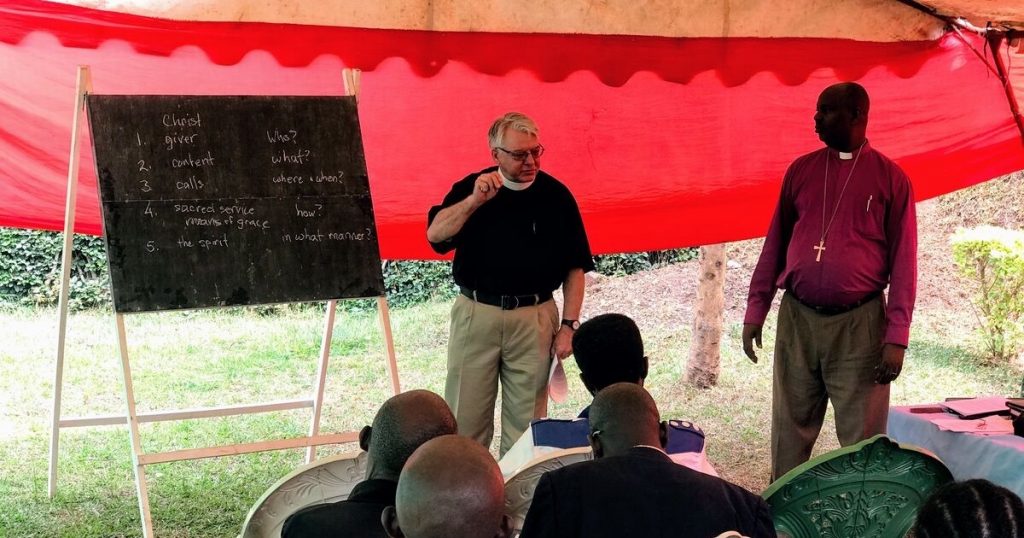
— by the Rev. Thomas Aadland
It is always a joy to watch things grow—flowering plants, children, students, a young church body. On 31 July 2019, I traveled to Kigali, capital of Rwanda, to meet my colleague Shara Osiro, Area deputy and Communications Specialist for Eastern and Southern Africa.
The Bishop Selestine Seburikoko of the Lutheran Mission in Africa—Synod of Thousand Hills (LMA-STH) took us to a retreat center near an LMA-STH congregation in Rwamagana, about an hour’s drive east of Kigali. For the next three days, up to 50 clergy, their wives, as well as pastoral and deaconess students met to study and reflect on a theme from Col. 3:16 and John 12:21: “Christ the Center of Ministry.”
Rwanda has grown. More aptly put, it has been healing. Twenty-five years ago, the nation endured a blood bath of ethnic cleansing, a genocide by the Hutu tribe against the Tutsi people. In April of 1994, nearly one million Rwandans were brutally massacred. Only by learning to forgive could Rwanda continue as a nation.
Today, the future looks bright even though deep hurts remain and questions are unanswered. A visit to a genocide memorial, of which there are many scattered across this tiny country, testifies to the deeply felt sense that the world needs to remember what had happened. Many Americans will also remember the atrocities portrayed in the film “Hotel Rwanda.”
The Gospel of Jesus Christ crucified and risen is their hope. Seburikoko himself was educated and served in the Anglican Church. He was drawn into the orbit of the Evangelical Lutheran Church of Tanzania (ELCT) but later became disturbed by the influence of the Lutheran World Federation (LWF) and the Evangelical Lutheran Church in America (ELCA) within the Lutheran Church of Rwanda.
His friendship with Bishop Emmanuel Makala of the Southeast of Lake Victoria Diocese (SELVD) of the ELCT familiarized him with the life and witness of The Lutheran Church—Missouri Synod (LCMS) in Africa. Makala received his PhD from Concordia Theological Seminary, Fort Wayne, Ind., and he has become an elder theological statesman in this part of Africa.
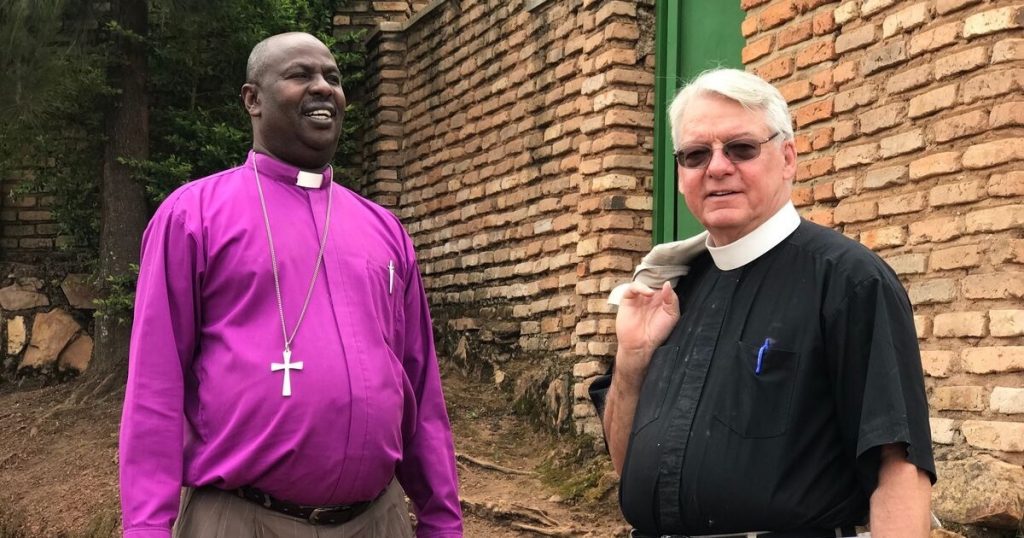
The LMA-STH is young and small. It organized in 2015 and has 11 pastors, 22 congregations and 13 evangelists. Yet it shows a strong desire to evangelize and plant congregations in its brief history.
At Seburikoko’s invitation and the request of the Rev. Dr. Mark Rabe, Eastern and Southern Africa regional coordinator for theological education, I spent 11 hours addressing these five questions:
- Christ is the Giver of that holy ministry conducted in His name. (Who?)
- Christ is the content of this ministry. (What?)
- Christ calls into the ministry through His Church and its order. (When and where?)
- Christ’s ministry is His sacred service to us by His Word and Sacrament (the Means of Grace). (How?)
- Christ’s ministry is conducted in His spirit, the spirit of compassion, humility, and love. (In what manner?)
This “synod” of the LMA-STH held special significance as the first such gathering in the church’s brief history. It was an opportunity for some of its members, many from other Protestant denominations, to learn in a careful and deliberate manner what it means to believe, teach and confess together in accordance with God’s Word and the Lutheran Confessions. They learned how the salvation we so desperately need is freely given by the holy ministry of which Christ is the center.
Nine students from the LMA-STH plan to pursue studies at Neema Theological Lutheran College (Matongo) in Kenya this fall semester, joining Seburikoko’s son Vincent. It will surely be a delight to watch them “grow in the grace and knowledge of their Lord and Savior Jesus Christ.” For which we say: “Thanks be to God!”
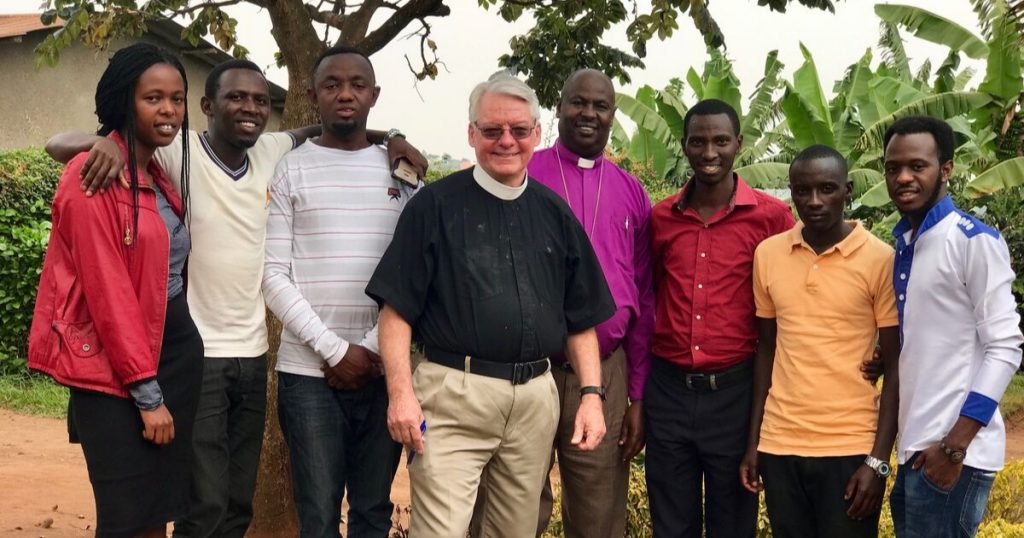
The Rev. Thomas Aadland teaches at the Neema Theological Lutheran College (Matongo) in Sondu, Kenya.
